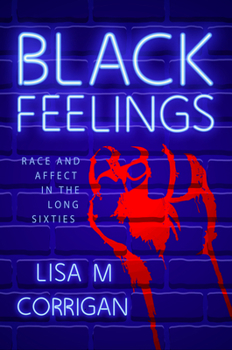Black Feelings: Race and Affect in the Long Sixties
(Part of the Race, Rhetoric, and Media Series Series)
Select Format
Select Condition 
Book Overview
Honorable Mention Recipient of the 2021 Marie Hochmuth Nichols Award for Outstanding Scholarship in Public Address by the National Communication Association In the 1969 issue of Negro Digest, a young Black Arts Movement poet then-named Ameer (Amiri) Baraka published "We Are Our Feeling: The Black Aesthetic." Baraka's emphasis on the importance of feelings in Black selfhood expressed a touchstone for how the Black liberation movement grappled with emotions in response to the politics and racial violence of the era. In her latest book, award-winning author Lisa M. Corrigan suggests that Black Power provided a significant repository for negative feelings, largely Black pessimism, to resist the constant physical violence against Black activists and the psychological strain of political disappointment. Corrigan asserts the emergence of Black Power as a discourse of Black emotional invention in opposition to Kennedy-era white hope. As integration became the prevailing discourse of racial liberalism shaping midcentury discursive structures, so too, did racial feelings mold the biopolitical order of postmodern life in America. By examining the discourses produced by Martin Luther King, Malcolm X, Stokely Carmichael, Huey Newton, Eldridge Cleaver, and other Black Power icons who were marshaling Black feelings in the service of Black political action, Corrigan traces how Black liberation activists mobilized new emotional repertoires
Format:Paperback
Language:English
ISBN:1496827953
ISBN13:9781496827951
Release Date:February 2020
Publisher:University Press of Mississippi
Length:238 Pages
Weight:0.78 lbs.
Dimensions:0.5" x 6.0" x 9.0"
Customer Reviews
0 rating





